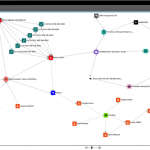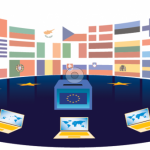
Opinion
A Gaming Revolution for International Development
There are more than one billion people living under $1.25 a day and almost the same number playing at least one hour of video games worldwide. So, how can the popularity of games be harnessed for positive social change?
21 March 2017

Opinion
The Digital Revolution: Why do you Google?
While we seem to be enchanted by the idea, there really is no such thing as an unbiased search result.
14 May 2016

Videogames and the Future of Ideological Warfare
Videogames have emerged as one of the preeminent domains of ideological warfare, forming part of the media strategies of both state military forces and violent non-state actors, including Islamic State. Dr Marcus Schulzke emphasizes the need to understand the role of videogames during times of conflict and their ability to control the narratives surrounding wars.
7 February 2016

Border control fights back with cyber evidence
Border control agents require the eyes of a hawk, a good understanding of human psychology and endless patience. But even with these attributes, border control is still a gamble. How do you know you’ve stopped the right person?
8 December 2015

Advancing Health Research Through Online Social Networking
The recent explosion of internet-based communication and education tools has enabled medical practitioners and researchers to interact with patients in new and innovative ways.
1 June 2014

Engaging Digital Citizens for Children’s Rights
Never before has there been such a rich opportunity to engage the world’s digital citizens, including a newly empowered youth, in issues surrounding children’s rights and well-being.
1 June 2014

The Virtual Drive
Augmented Reality (AR) has significant economic potential because it embeds virtual objects into physical reality at negligible marginal costs, while maintaining targeted advertising capabilities similar to those of the internet.
1 June 2014

Identity: Who Do You Think You Are?
By 2020, it is predicted that networked devices, streaming information and connecting us globally, will exceed 50 billion. But will we be able to switch off, or maintain distinct identities in online and offline worlds?
1 June 2014

From London to the Arctic
Technology can play a role in helping people to collaborate – and increasingly participate – in research experiements previously inaccessible to the non-expert.
1 June 2014

How Much Surveillance Can Democracy Withstand?
We need to reduce the level of general surveillance, but how far? Where exactly is the maximum tolerable level of surveillance, which we must ensure is not exceeded?
1 June 2014

Liquid Democracy: New Politics in a Connected World
What forms the basis of an emerging form of technological movement, such as that seen in Egypt and Brazil, and how might it be used to bring about a new political revolution?
1 October 2013

Astrobiology: Searching for Life in Space
The human mind is fascinated by the possibility of other life in the universe. From as early as the fifth century B.C, science fiction and science fact have been intricately linked driving forward innovation and imagination.
1 October 2013

Digital Platforms and E-Bureaucracy in Participative Democracy
In times of widespread access to high speed internet and social media, one would expect that it is easy to reach out to millions of people and encourage them to participate in direct democracy – but experience so far has proven the contrary.
1 October 2013

Preventing State Conflict in Cyberspace
Can a normative solution to state-sponsored cyber attacks bring peace to cyberspace?
1 October 2012






